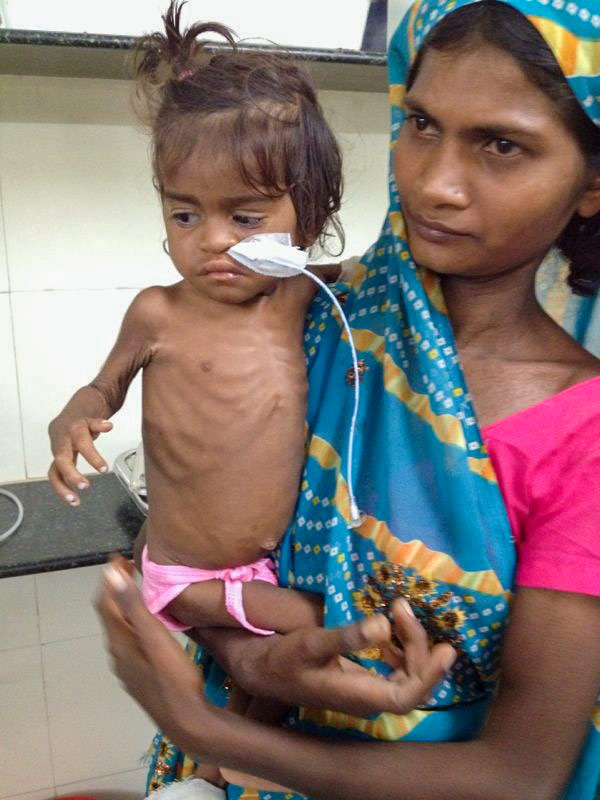Center for Global Health Innovation
Disadvantaged Communities
We strive to engage caregivers at the right place to serve people in any disadvantaged community — including those in the United States.
A FOOT TRAIL LEADS over the 15,000-ft Tulku-La Pass. Susmita feels tired: she is 8½ months pregnant and wants to give birth in a safe environment. During her last pregnancy she and her baby almost died. “The baby ‘got stuck’ and I lost so much blood, I almost died,” she said. Susmita could not reach a hospital in time and gave birth in a cowshed. She remembers the day – it was Dec. 5, and it was “so” cold. She stayed in the cowshed for 11 days with her newborn.
Could she reach the hospital this time? Susmita lives in a remote district in Nepal. The nearest hospital with a doctor is far away — an eight days hike for a foreigner. Five for a local. Definitely too far for a woman in labor.
 Rahul was just 18 months when a village health worker found him and referred him to a community hospital. He was in poor health, weighing only 9.8 pounds and suffering from fever and cough. Rahul belongs to a migrant worker family in Gujarat, India. His mother works from sunrise to sunset in the fields, harvesting crops for the farmers. They live under a blue tarp next to the road – all her family does. Husband, three children, and her parents. “We live on less than $1 per day and rarely we have enough food for all of us. We usually go to bed hungry.”
Rahul was just 18 months when a village health worker found him and referred him to a community hospital. He was in poor health, weighing only 9.8 pounds and suffering from fever and cough. Rahul belongs to a migrant worker family in Gujarat, India. His mother works from sunrise to sunset in the fields, harvesting crops for the farmers. They live under a blue tarp next to the road – all her family does. Husband, three children, and her parents. “We live on less than $1 per day and rarely we have enough food for all of us. We usually go to bed hungry.”
In India and Nepal, countless women and children live in remote or disadvantaged communities where poverty, distance and lack of accessible services such as health care and education continue the cycle through the next generations. Rahul was admitted to a rural hospital in India where the NEOMED team works with the local medical team and the Indian government to treat children with severe acute malnutrition.
Rahul survived and thrives. But how many children just like Rahul do not?
There is much work to do. The pain a mother feels when losing a child knows no borders.
“Go to the people. Live with them. Learn from them. Love them. Start with what they know. Build with what they have. But with the best leaders, when the work is done, the task accomplished, the people will say ‘We have done this ourselves.’” [LAO TZU, 660 BC]
Enter NEOMED’s Center of Global Health Innovation. NEOMED partners with the best and brightest innovators in Nepal and India to find new solutions for today’s problems. Through observance, social learning, analyzing, reframing, prototyping and planning, we design and develop health systems that can be integrated in the community and engage the caregivers at the right place to serve people in any disadvantaged community — including those in the United States.
NEXT
Raw and real.
This is not a typical medical mission trip.
CONTACT US
For questions, availability, travel arrangements, rotations, arranging experiences and finding out more about our global education programs:
Bernhard Fassl, M.D.,
Director, Center for Global Health Innovation
Profile on Google Scholar
bfassl@neomed.edu
Victor Torres, M.A.,
Associate Director, Center for Global Health Innovation
vtorres@neomed.edu



